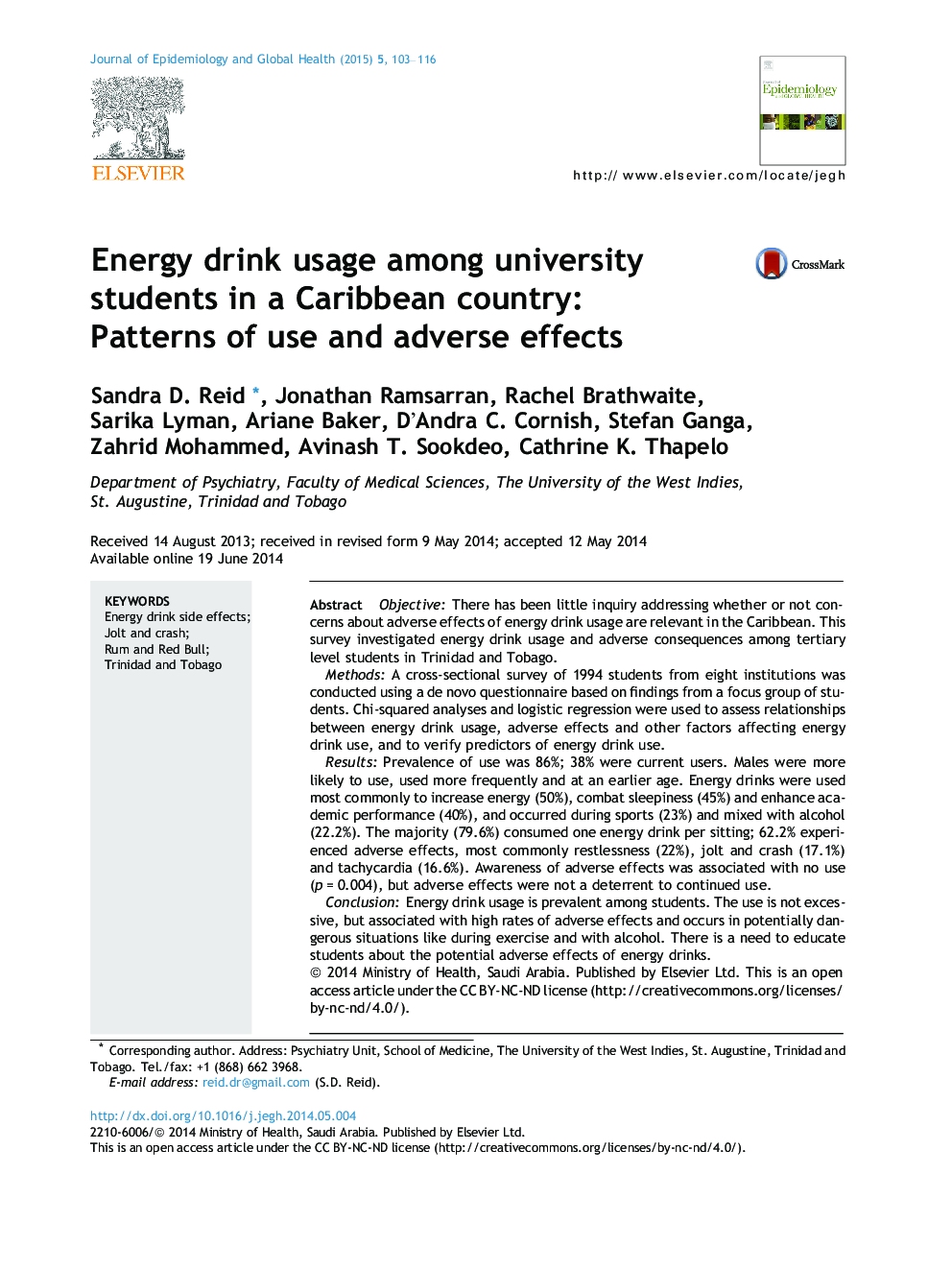| Article ID | Journal | Published Year | Pages | File Type |
|---|---|---|---|---|
| 3327584 | Journal of Epidemiology and Global Health | 2015 | 14 Pages |
ObjectiveThere has been little inquiry addressing whether or not concerns about adverse effects of energy drink usage are relevant in the Caribbean. This survey investigated energy drink usage and adverse consequences among tertiary level students in Trinidad and Tobago.MethodsA cross-sectional survey of 1994 students from eight institutions was conducted using a de novo questionnaire based on findings from a focus group of students. Chi-squared analyses and logistic regression were used to assess relationships between energy drink usage, adverse effects and other factors affecting energy drink use, and to verify predictors of energy drink use.ResultsPrevalence of use was 86%; 38% were current users. Males were more likely to use, used more frequently and at an earlier age. Energy drinks were used most commonly to increase energy (50%), combat sleepiness (45%) and enhance academic performance (40%), and occurred during sports (23%) and mixed with alcohol (22.2%). The majority (79.6%) consumed one energy drink per sitting; 62.2% experienced adverse effects, most commonly restlessness (22%), jolt and crash (17.1%) and tachycardia (16.6%). Awareness of adverse effects was associated with no use (p = 0.004), but adverse effects were not a deterrent to continued use.ConclusionEnergy drink usage is prevalent among students. The use is not excessive, but associated with high rates of adverse effects and occurs in potentially dangerous situations like during exercise and with alcohol. There is a need to educate students about the potential adverse effects of energy drinks.
